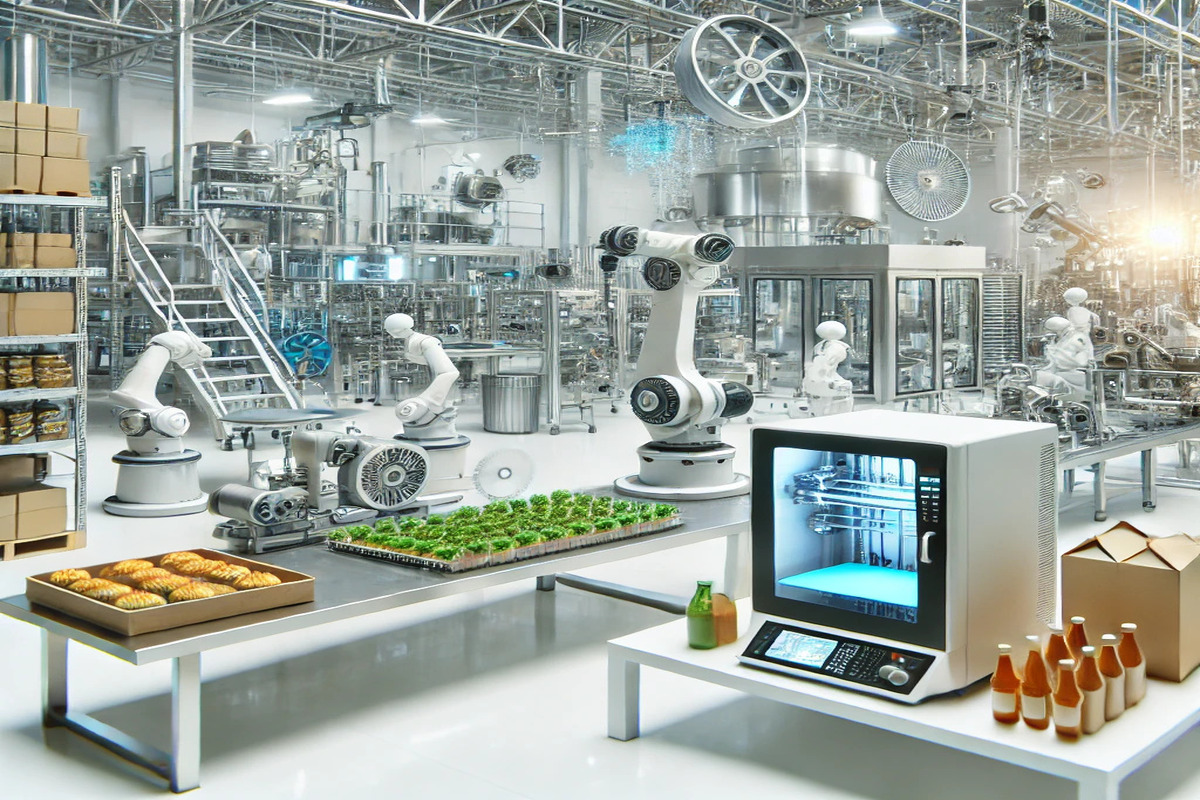Food manufacturing is undergoing significant transformations globally, driven by technological advancements, changing consumer preferences, and sustainability initiatives. Read More
1. Asia-Pacific: Embracing Automation and Smart Technologies
In Asia-Pacific, food manufacturers are increasingly adopting automation and smart technologies to improve efficiency and maintain high standards of food safety. Robotics and AI are revolutionizing production lines, enhancing precision in processing and packaging. Countries like Japan and South Korea lead in the adoption of robotic systems for sushi preparation and automated meal assembly, catering to fast-paced urban lifestyles.
2. Europe: Sustainable Practices and Clean Label Initiatives
Europe emphasizes sustainable food manufacturing practices and clean label initiatives. Consumers demand transparency in food ingredients and production methods, prompting manufacturers to use natural additives, reduce food waste, and implement eco-friendly packaging solutions. Innovations in plant-based proteins and alternative dairy products are gaining traction, driven by environmental concerns and health-conscious consumer choices.
3. North America: Tech-Driven Food Safety and Traceability
In North America, food manufacturers are leveraging technology for enhanced food safety and traceability. Blockchain technology is used to track supply chains from farm to table, ensuring product authenticity and minimizing contamination risks. The region also sees a rise in personalized nutrition solutions, with companies offering tailored food products based on genetic profiles and dietary preferences.
4. Latin America: Indigenous Ingredients and Functional Foods
Latin America embraces its rich culinary heritage by incorporating indigenous ingredients into modern food manufacturing. Superfoods like quinoa, chia seeds, and açai berries are exported globally for their nutritional benefits. Functional foods and beverages, enriched with vitamins, probiotics, and adaptogens, cater to wellness-conscious consumers seeking holistic health benefits.
5. Middle East and Africa: Halal Certification and Regional Specialties
In the Middle East and Africa, food manufacturing focuses on halal certification and regional culinary specialties. Halal food production adheres to Islamic dietary laws, ensuring products are permissible and free from prohibited ingredients. Manufacturers innovate with dates, olives, spices, and traditional grains to meet global demand for authentic Middle Eastern and African flavors.
6. Global Trends: Personalized Nutrition and Food Tech Innovations
Globally, personalized nutrition is a growing trend influencing food manufacturing. Advances in food technology allow for customized diets tailored to individual health needs and preferences. Companies utilize AI algorithms and genetic testing to create personalized meal plans and functional snacks, catering to diverse dietary requirements and lifestyles.
Conclusion
The food manufacturing industry is at the forefront of innovation, driven by evolving consumer preferences, technological advancements, and sustainability imperatives across different regions of the world. From automation and smart technologies in Asia-Pacific to sustainable practices in Europe, and personalized nutrition solutions globally, manufacturers are adapting to meet the demands of a dynamic marketplace.
Embracing these trends not only enhances operational efficiency and product quality but also fosters consumer trust and supports environmental stewardship. As the industry continues to evolve, collaboration between food manufacturers, technology providers, and regulatory bodies will play a crucial role in shaping a resilient and responsive food supply chain for the future.

